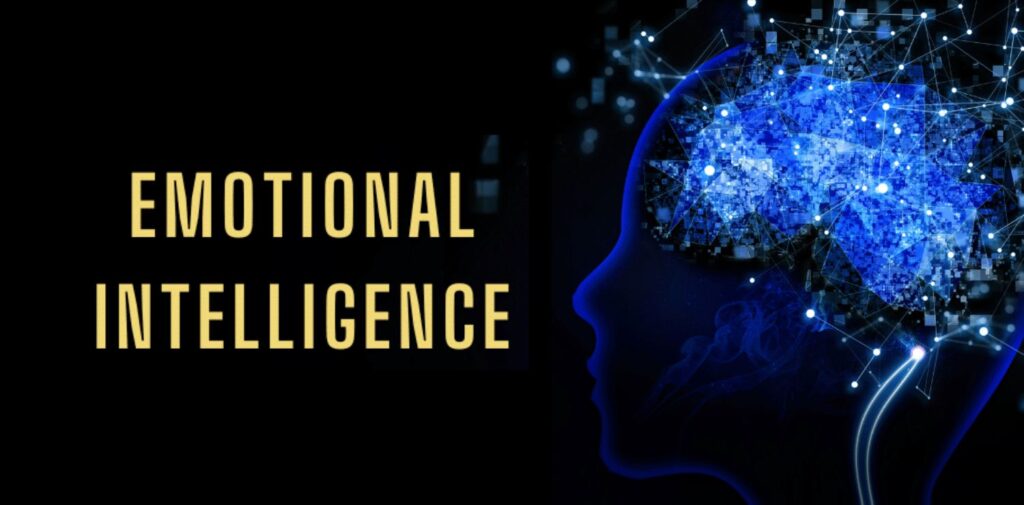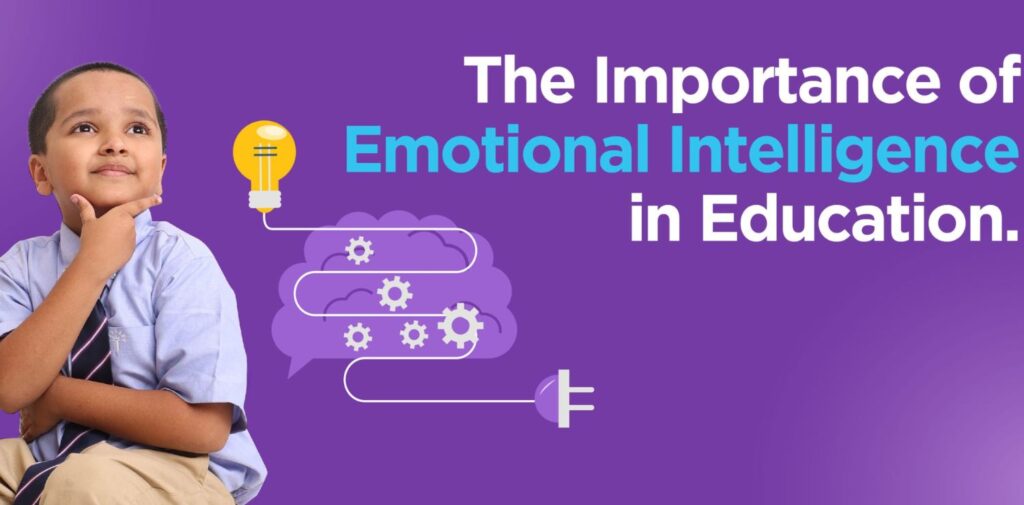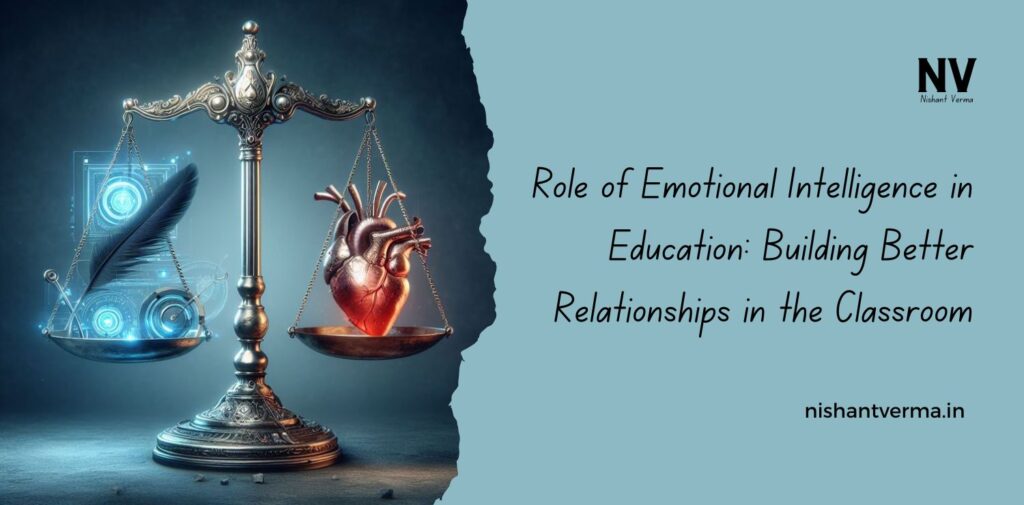Have you ever been in a situation where you felt really angry, sad, or happy, and it affected the way you behaved or interacted with others? Maybe you were upset because your friend didn’t invite you to their birthday party, or maybe you felt excited when you got a good grade on a test. These feelings are all part of emotions, and they play a huge role in how we learn, work, and communicate with others.
In school, we not only learn math, science, and history, but we also learn about how to deal with our emotions and understand the emotions of others. This is called emotional intelligence (or EQ). Emotional intelligence helps us understand our own feelings, control them when needed, and connect with others in a positive way.
In this article, we will explore the role of emotional intelligence in education, and how it can help students and teachers build better relationships in the classroom. We will also share some examples to make it easy to understand, so even a kid can relate to it!
What is Emotional Intelligence (EQ)?
Emotional Intelligence refers to the ability to recognize, understand, manage, and express emotions in healthy ways. It’s like being aware of your feelings and using them to help you make better decisions, solve problems, and get along with others.
There are five main parts of emotional intelligence:
- Self-awareness: Knowing what you’re feeling and why.
- Self-regulation: Being able to control your emotions, especially when you’re upset or angry.
- Motivation: Staying focused and working hard, even when things get difficult.
- Empathy: Understanding how others feel and showing care for them.
- Social skills: Being able to communicate well with others and work together in groups.

Why is Emotional Intelligence Important in Education?
In schools, emotional intelligence is just as important as academic skills. When students have high emotional intelligence, they can focus better on their studies, handle stress, and build positive relationships with teachers and classmates. This leads to a happier and more supportive learning environment for everyone.
For teachers, emotional intelligence is important because it helps them connect with students, understand their needs, and handle classroom challenges with patience. Teachers with high emotional intelligence can create a positive classroom atmosphere where students feel safe, respected, and motivated to learn.

Building Better Relationships in the Classroom
One of the most important benefits of emotional intelligence is that it helps in building better relationships in the classroom. Let’s look at how EQ helps both students and teachers connect with each other:
Self-awareness and Understanding Emotions
Example:
Imagine you’re a student in a class, and one day you feel really angry because you didn’t do well on your math test. Instead of taking out your frustration on your classmates or teacher, emotional intelligence helps you understand that you’re upset because you feel disappointed in yourself. Once you realize this, you can calm yourself down, talk to your teacher about what went wrong, and ask for help in improving.
When students can understand their emotions, they can communicate better with others. This makes it easier to solve problems and avoid fights.
For teachers, self-awareness is also important. If a teacher is feeling frustrated or tired, emotional intelligence helps them recognize those feelings and handle them calmly instead of getting angry with the students.
Self-regulation and Controlling Emotions
Example:
Let’s say you’re working on a group project in class, and your teammate is not doing their part. You feel really upset and want to yell at them. However, because you have emotional intelligence, you take a deep breath and think about how your words might hurt the other person. Instead of getting angry, you calmly explain the problem and ask how you can work together to fix it.
Self-regulation helps students and teachers stay calm, even when things don’t go as planned. This makes the classroom a more peaceful and positive place for everyone.
Empathy: Understanding Others’ Feelings
Example:
Imagine your friend in class is feeling sad because they lost their pet at home. They seem quiet and distant. Instead of ignoring them, you use empathy to understand how they might be feeling. You go up to them and say, “I’m sorry to hear about your pet. Is there anything I can do to help or make you feel better?”
Empathy helps students understand what others are going through. It makes it easier to be kind and supportive, especially when someone is having a tough time.
For teachers, empathy helps them recognize when a student is struggling, even if they don’t say anything. Teachers who show empathy are able to support students and create a caring environment.
Social Skills: Building Positive Connections
Example:
In school, you have to work with different people in group projects. If you have good social skills, you know how to communicate your ideas clearly and listen to others. If someone disagrees with you, you don’t argue or get upset—you try to find a solution that works for everyone.
Having strong social skills helps students and teachers work together as a team. It also helps resolve conflicts, build trust, and create a sense of community in the classroom.
How Emotional Intelligence Helps in Classroom Learning
Improved Focus and Motivation: Students with high emotional intelligence can stay focused on their goals, even when they face challenges. They know how to stay positive and motivated, even if they don’t do well in a test or assignment. This helps them keep trying until they succeed.
Example:
Sita, a student in class 8, didn’t do well in her science exam. She felt upset, but because she had good emotional intelligence, she didn’t give up. Instead, she talked to her teacher, identified the areas she needed to improve, and worked hard to study. By the next exam, she did much better!
Better Handling of Stress: School can sometimes be stressful, especially when you have many exams or assignments. Students with emotional intelligence can manage their stress better and stay calm, which helps them perform better.
Example:
Ravi has a big exam coming up. He feels anxious and worried. But because he knows how to handle stress, he takes a short break, does some deep breathing exercises, and then gets back to studying. This helps him stay calm and focused.
Conflict Resolution: In a classroom, there are times when students disagree or argue. Emotional intelligence helps students and teachers solve these problems by encouraging calm discussions and finding solutions that work for everyone.
Example:
Two students, Rohit and Anil, argue over who should lead the class project. Instead of fighting, their teacher steps in with empathy, listens to both sides, and helps them come to a solution where both can contribute equally. This helps maintain harmony in the classroom.

How to Improve Emotional Intelligence
Everyone can work on improving their emotional intelligence! Here are some simple ways to get started:
- Identify Your Emotions: Take a moment each day to think about how you are feeling. Are you happy, sad, angry, or nervous? Understanding your emotions is the first step in managing them.
- Practice Self-Regulation: When you feel upset, try to stay calm. Take deep breaths, count to ten, or walk away from the situation to cool down.
- Listen and Understand Others: When talking to someone, try to listen to them without interrupting. Pay attention to their feelings and offer support when needed.
- Be Kind and Respectful: Show kindness and respect to your classmates, teachers, and friends. Small acts of kindness can go a long way in building strong relationships.
- Work Together: In group activities, try to collaborate and help each other. This will not only help you learn but also create a positive and supportive classroom environment.
Conclusion: Role of Emotional Intelligence
Emotional intelligence is a powerful tool that helps students and teachers build strong relationships in the classroom. By understanding our own feelings, managing them, and being kind and empathetic toward others, we can create a positive and supportive learning environment.
In India, where schools are becoming more diverse and dynamic, emotional intelligence plays an important role in making sure every student feels valued and understood. So, whether you’re a student or a teacher, working on your emotional intelligence will help you build better connections, solve problems, and make learning more enjoyable for everyone!
By learning about and practicing emotional intelligence, we can make our classrooms places where everyone feels happy, confident, and ready to learn!




